Mother as an Embodiment of Sacrifice and Protection
(Part of this article was presented at Karya Siddhi Hanuman Temple, Frisco TX, USA in celebration of Mother’s Day on May 8, 2016)
"Where women are honored there the gods are pleased; but where they are not honored no sacred rite yields rewards," (Manu Smriti, III.56)
"Youth fades; love droops; the leaves of friendship fall; A mother’s secret hope outlives them all." — Oliver Wendell Holmes

First of all, we want to wish all mothers a Happy Mother’s Day. We should acknowledge on this Mother’s Day, the role of mother in our religion, culture, scriptures, and in many other fields such as science, politics, philosophy, education, music and economy. Her impeccable role in the family is recognized, her unselfish sacrifice to the family is documented, and her indomitable strength is acknowledged. She is considered the backbone of the family, a stabilizing force and plays a vital role in preservation of the family.
Hindu religion has given her the highest position any religion can accord. Matru Devo bhava is the dictum nobody can forget. Mother is divine. It is important to remember that only Hindus worship God in the form of Divine Mother. In Hinduism we have Sri Lakshmi, goddess of wealth, Saraswati the goddess of learning and knowledge, Parvati goddess who bestows women with long married life, and Kali, the power of time and other goddesses who protected the human race from demonic forces. Women as goddesses are worshipped in all religious festivals. During Navaratri time, different manifestations of Devi are worshipped for ten days. And no function is complete without the participation of women. The social inconsistencies and injustices in the role of women did not arise from Hindu scriptures, but from the external forces that that constrained the movement of women as well as the foreign rule that forced women to take a protective role. Many Hindu scriptures accorded the high regard and the highest status to women.
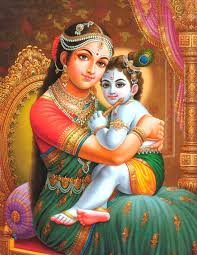
In fact, the sixth century Devi-Mahatyam says: “By you this universe is borne, by you this world is created. By you it is protected, O Devi: By you it is consumed at the end. You are the Supreme Knowledge, as well as ignorance, intellect and contemplation...”
Look at what Manu Smriti says about the status of women:
"From the point of view of reverence due,
a teacher is tenfold superior to a mere lecturer,
a father a hundredfold to a teacher, and a
mother a thousand fold to a father." (II.45)
"Women must be honored and adorned by their fathers, brothers, husbands and brothers-in-law, who desire their own welfare." (III, 55)
" Where the female relations live in grief, the family soon wholly perishes; but that family where they are not unhappy ever prospers." (III, 57).
"The houses on which female relations, not being duly honored, pronounce a curse, perish completely as if destroyed by magic." (III, 58)
" Hence men who seek their own welfare, should always honor women on holidays and festivals with gifts of ornaments, clothes, and dainty food." (II, 59)
In an old Shakta hymn it is said - Striyah devah, Striyah pranah "Women are Devas, women are life itself." (Bharata Shakti - By Sir John Woodroffe p. 95).
From the early Vedic times women played vital role in preservation of Hindu heritage. They include such women as Sati, Sita, Anasuya, Arundhatee, Draupadi, Queen Kunti, Shakuntala, Maitreyi, Gargi, Madalasa, Savitri, Ahalya, and others. Many believe that simply reciting their names removes sins and remembering their names gives invincible strength.
Men and women form complement each other, just like heaven and earth, lyric and melody. They are equal partners in married life. Sage Agastya tells his wife Lopamudra – “In this world, we will overcome all adversities if we two exert ourselves together.” A wife is called Ardhaangini (‘half of oneself’), Sahadharaini (a comrade in life), Sahadharmini (an equal participant in performance of and in reaping fruits of good deeds), Pathni (the one who leads the husband through life), Dharmapathni (the one who guides the husband in dharma) and Sahadharmacharini (one who moves with the husband on the path of dharma--righteousness and duty). We call her better half.
Mother is seen as the cornerstone and foundation of the family. She is considered the upholder of the family traditions and supporter of dharma. She is considered the first Guru to her children as she provides the primary care, love, affection, compassion and moral compass. She is the one who transmits and nurtures the morals, ethics and ideals needed to provide foundation for the off springs. Stephen Knapp remarked, “Women in motherhood, after giving birth to a child that they have carried for nine months, is the first guru and guide of the child and, thus, of humanity. Through this means, before any child learns hatred or aggression, they first know the love of a mother who can instill the ways of forgiveness and kindness in the child. In this way, we can recognize that there is often a strong woman, either as a mother or as a wife, behind most successful men…. In exhibiting the qualities of motherhood, women must be warm and tender, strong and protective, yet also lay the foundation of discipline and the discrimination of right from wrong.”
Sri Swami Vivekananda on the Position of Mother
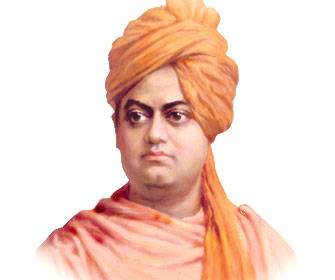
Swami Vivekananda expressed an abundant appreciation and lavish veneration to the women of Bharat and mother was considered the solid foundation of Hindu philosophy, culture and civilization. He respected her as the symbol of Divine Motherhood. From the childhood until they reach their end of life, Hindus always remember the sacrifices mother has made in shaping their personality. He said, the ideal woman in India is mother, the mother first, and the mother last. The word mother calls up to the mind of the Hindu, motherhood; and God is called Mother.
“The position of the mother is the highest in the world, as it is the one place in which to learn and exercise the greatest unselfishness. The love of God is the only love that is higher than a mother's love; all others are lower. It is the duty of the mother to think of her children first and then of herself. “
He always remembered the love and compassion of mother toward her children. Nothing is comparable to the love of mother toward her progeny. Children may disavow their mother but mother never deserts her children. Her love is color blind and never dissipates. She gladly embraces all the miseries of her children and safeguards them against all the misfortunes. “Women as mother is marvelous, unselfish, all suffering and ever forgiving.”
In a lecture delivered in Shakespeare Club House, in Pasadena, California, on January 18, 1900, Swami Vivekananda stated, “The ideal woman in India is the mother, the mother first, and the mother last. The word woman calls up to the mind of the Hindu, motherhood; and God is called Mother… To the ordinary man in India, the whole force of womanhood is concentrated in motherhood. In the Western home, the wife rules. In an Indian home, the mother rules…The name has been called holy once and for ever, for what name is there which no lust can ever approach, no carnality ever come near, then the one-word mother? That is the ideal in India.”
”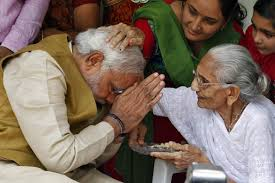 Swami Sivananda: “The Mother is a mysterious, indescribable power of the Supreme Being. She is the dynamic aspect of the Supreme, Transcendent Being, which is infinity, eternity and ineffable peace, beyond the cognizance of the senses and the mind.”
Swami Sivananda: “The Mother is a mysterious, indescribable power of the Supreme Being. She is the dynamic aspect of the Supreme, Transcendent Being, which is infinity, eternity and ineffable peace, beyond the cognizance of the senses and the mind.”
Francois Gautier “Thus in India - and it is true that it is often a paradox, as women, because of later Muslim influences, have often been relegated to the background - the feminine concept is a symbol of dynamic realization. She is the eternal Mother, who is all Wisdom, all Compassion, all Force, Beauty and Perfection. It is in this way that since the dawn of times, Hindus have venerated the feminine element under its different manifestations. Mahalakshmi, Mahakali, Mahasaraswati, Maheshwari - and even India is feminine: "Mother India." “
Bhishma gloried the Mother.
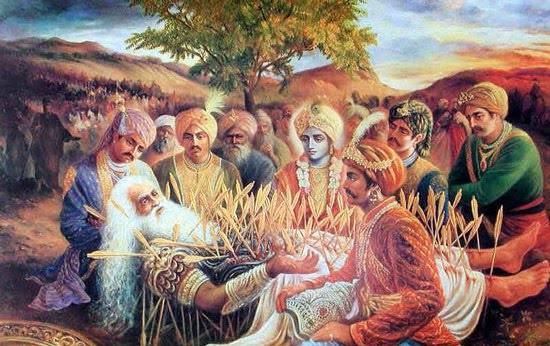
According to Bhishma nothing is superior to serving women. One who respects and serves mother achieves great success in life. He blessings are ever present and never evaporate, even if her children reach the oldest age possible as long as she is alive.
“The mother is the panacea for all kinds of calamities. The existence of the mother invests one with protection; the reverse deprives one of all protection. The man who, though divested of prosperity enters his house, uttering the words, "O mother!"- has not to indulge in grief. Nor does decrepitude ever assail him. A person whose mother exists, even if he happens to be possessed of sons and grandsons and even he himself is hundred years old, but in the eyes of his mother he looks like a child of two years of age. Whether the mother is able or disabled, lean or robust, the son is always protected by the mother. None else, according to the ordinance, is the son’s protector. Then does the son become old, then does he become stricken with grief, then does the world look empty in his eyes, when he becomes deprived of his mother. There is no shelter like the mother. There is no refuge like the mother. There is no defense like the mother. There is no one so dear as the mother. For having borne him in her womb the mother is the son’s dhatri. For having been the chief cause of his birth, she is his janani. For having nursed his young limbs, she is called amva (Amma). For nursing and looking after the son she is called Sura. The mother is one’s own body.” (Santi Parva: Mokshadharma Parva; Section CCLXVI)
Kunti as Mother
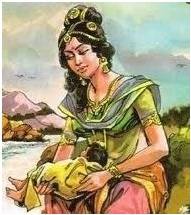
After Surya Deva fulfilled her wish to have a son, Kunti became pregnant. He promised her that she would remain a virgin after the delivery. With that promise, a boy came out from her ear; hence he was called Karna. As the promise was fulfilled without any body’s knowledge, she decided to leave him in Ashva river. Mother Kunti put him in a box and with so much agony, with tears rolling on her cheeks leaves him in the river. As a mother she raised her eyes to the scorching Surya Deva requested him by saying: “Watch over our son, let no evil befall on him.” As the box started floating away from her, she blessed her so: “May all your paths be auspicious. May the lord of rivers guard you; may the lord of the air watch over you; may all the Gods protect you. And when I see you again one day, let me know you by your golden kavachas and kundala.”
Kunti played a major role as a Mother in influencing her sons to fight the war. She advised her sons to take up arms for the preservation of dharma and to follow the tradition of Kashatriyas whose responsibility it was to protect the people of their land. After the war was concluded with Pandavas victory over Kauravas, se decided to take Vanaprasha Ashrama along with Dhritarashtra and Gandhari. Yudhisthira was shocked and said that you goaded us to wage war and why are you leaving us at this stage. Bhima also implored by saying “why this decision to leave when you should be enjoying the riches your sons have acquired?” Her advice should be taken as a role model for all the mothers across the globe and the children to follow:
“It is true, son, that I egged you on to fight for your rights when you were roaming about with empty stomachs and grief-laden hearts. Deprived of your rightful patrimony, insulted by your kinsmen, when you were living on the bread of beggary, I did goad you on to fight for your rights. You ask me, why? In order that you may not wait on your inferiors, you who are veterans of war and are as noble as the gods. So that you, Yudhishthira, who are righteous and the rightful heir to the throne may not wander about in the woods. So that Bhima, who is far-famed for his prowess, may not suffer humiliation at the hands of his enemies. So that Arjuna, Indra’s son, may not drink the cup of misery. So that your dear younger brothers Nakula and Sahadeva may not know the pinch of poverty and hunger. So that Draupadi, this dear daughter of mine, may not fall prey again to vile molestation. My dear son, it was to rouse you to your own glory that I pushed you into war through the words of Vidula. I encouraged you to fight in order that the noble line of the great King Pandu may not come to an end with my sons. There is no hope or future for one who brings about the ruin of one’s family. My children, I have enjoyed in full all the royal pleasures which my departed husband had earned for me. Charities without number have I performed. And I have sipped the soma juice in solemn sacrifice. I do not crave for any enjoyment earned by my sons. I intend reducing my body through penance and service to my elders. May your mind ever remain steadfast in righteousness; may your mind be noble: Dharme te dhīyatām buddhirmanaste mahadastu ca.”
Gandhari as Mother
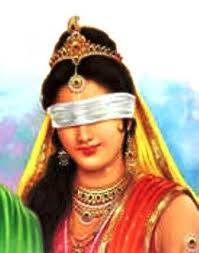 Before the war between Pandavas and Kauravas commenced, Dhritarashtra and Gandhari counselled their children to make peace with Pandavas. There is a moral lesson to learn from Gandhari and what happens when the children go against the wishes of a mother. It is obvious that the refutation of Gandhari’s advice to her sons wiped out the Kaurava family – all 100 of her sons were killed along with Karna.
Before the war between Pandavas and Kauravas commenced, Dhritarashtra and Gandhari counselled their children to make peace with Pandavas. There is a moral lesson to learn from Gandhari and what happens when the children go against the wishes of a mother. It is obvious that the refutation of Gandhari’s advice to her sons wiped out the Kaurava family – all 100 of her sons were killed along with Karna.
Gandhari then tried to correct her son, Duryodhana, by saying, “You are a fool! You never listen to wisdom that is meant for your own interest. All the elders have spoken in favor of peace, but you alone desire war which will destroy our family. You will remember your father's words when struck dead by Bhimasena's mace.”
Gandhari even advised her husband to stop the game of dice twice with no success. She even chides Dhritarashtra for not interfering while the Draupati was being disrobed in the court. This kind of humiliation to Draupati would surely “rekindle a dead fire, topple a bridge re-built” and destroy the Kaurava dynasty. She always advised her sons with words of wisdom and motherly love for them to follow. She pleaded them to eschew the needless war by sharing the kingdom with Pandavas. She argued that they should avoid the greedy ambition to possess the entire kingdom. Even Lord Krishna recognized and appreciated her dharmic counsel by saying that, “You have, in the open court, repeatedly and rightly spoken words of wisdom and justice for the welfare of both the sides thirsting for war.”
Before going into the battle on the final day, Duryodhana goes to his Mother Gandhari seeking her blessings before going to the battle. Her blessings have not blinded her motherly affection. She was on the side of dharma, when she remarked, "Listen to my words, O fool, where there is righteousness there is victory (Srunu mudha vachomyaham yato dharmastato jayah - Salya Parva 63.62).
Lord Krishna even lauds Gandhari’s wisdom and the passion for her path of dharma by saying, “O the gracious Lady, there is none comparable to you in the whole world" (tat samam nasti loke sminnadya simantini shubhe - Salya Parva 63.59).
Mother’s love in deep and unconditional. It is profound and unfathomable. When Gandhari realized that the war was immanent, knowing fully well that Duryodhana was not as strong as Bhima, in order to ensure success in the war, she ask her loving son Duryodhana, “Before you go into battle, son, come before me without any clothes. When I look upon your body, each part that I see will become hard as a diamond, unyielding to weapons.” Feeling shy and uncomfortable to appear totally naked in front of his mother, he covered his groin and hips with leaves around his waist. First time she removed her blindfold after her marriage to see her son with the leaves around his waist. She was horrified to say, “Oh my son, what have you done? Now, that covered part of your body will be vulnerable to weapons. Your enemies will not fail to strike you there.” She bitterly cried and she knew that Duryodhana was destined to be killed by striking at the part that was covered with leaves. In the battle Bhima struck Duryodhana at his hip for his ultimate death.
Sri Adi Shankara Praises Mother
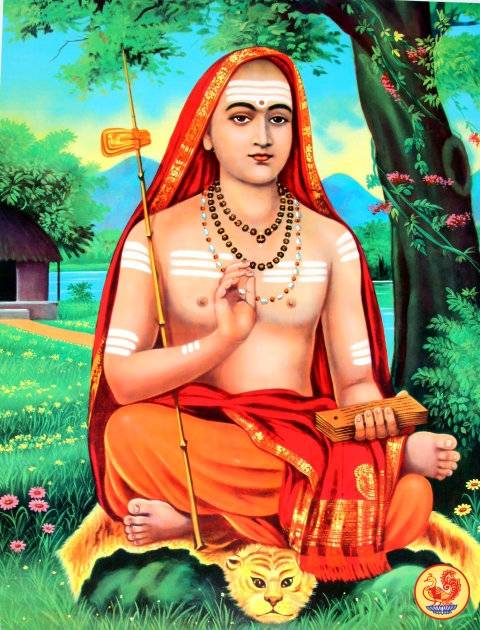 Adi Sankara Bhagavatpada’s mother, Aryamba, was against his taking up Sanyasa and leave the house. She finally agreed based on the promise he made to his mother that he would present near her death bed and also he would perform the obsequies. When he was at Sringeri, with his siddhi (powers), he realized that his mother was nearing death and reached his mother immediately and performed her funeral services. He also said that there is no bad mother, it is only a bad som. At that time, he composed five slokas to reflect the pain they endure and sacrifice mothers make for their children. First sloka gives the emotional appreciation of mother by Adi Shankara.
Adi Sankara Bhagavatpada’s mother, Aryamba, was against his taking up Sanyasa and leave the house. She finally agreed based on the promise he made to his mother that he would present near her death bed and also he would perform the obsequies. When he was at Sringeri, with his siddhi (powers), he realized that his mother was nearing death and reached his mother immediately and performed her funeral services. He also said that there is no bad mother, it is only a bad som. At that time, he composed five slokas to reflect the pain they endure and sacrifice mothers make for their children. First sloka gives the emotional appreciation of mother by Adi Shankara.
Oh mother mine,
With clenched teeth bore thou the excruciating pain,
When I was born to you,
Shared thou the bed made dirty by me for an year,
And thine body became thin and painful,
During those nine months that you bore me,
For all these in return,
Oh mother dearest,
I can never compensate,
Even by my becoming great.
On this Mother’s Day let us all appreciate, applaud and accolade the role of mother, her importance in rearing the children, instilling everlasting ethical values, sacrificing her life for the sake of children, guiding them through lifelong, and blessing them with incomparable love and compassion.
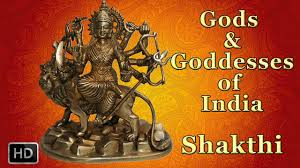
DONATIONS
As many of you know that SaveTemple Office was opened in June 2012 in Hyderabad. Office is located in Khairatabad. Four full time employees are working on the update of our website, Aalayavani Web Radio, Aalayavani magazine, conducting various activities to preserve and protect Hindu Temples and Culture. Our budget is approximately 2 lakh rupees per month. We request your generous donation to conduct activities to promote unity among Hindus and restore the glory of Hinduism.
Please DONATE. Your donations are appreciated to continue the work.
NOTE: GHHF is exempt from federal income tax under section 501 (c) 3 of the Internal Revenue code. Our tax ID # 41-2258630
Donate at: http://www.SaveTemples.org (click ‘Donate’ button on right side).
Where to send your DONATIONS?
Global Hindu Heritage Foundation
14726 Harmony Lane, Frisco, TX 75035.
Your donations are tax deductible. Our Tax ID: # 41-2258630
Any questions, call: Prakasarao Velagapudi 601-918-7111
GHHF Board of Directors:
Prakasarao Velagapudi PhD, (601-918-7111 cell), (601-856-4783 home); Prasad Yalamanchi (630-832-2665; 630-359-5041); Satya Dosapati (732-939-2060); Satya Nemana (732-762-7104); Sekhar Reddy (954-895-1947); Vinay Boppana (248-842-6964); Tulasichand Tummala (408-786-8357); Raju Polavaram, MD (919-959-6141); Nandini Velagapudi, PhD (601-942-2248); Rama Kasibhatla (678-570-1151); Shankar Adusumilli MD (919-961-9584); Sireesha Muppalla (631-421-8686); Prasad Garimella MD (770-595-8033); Raghavendra Prasad MD (214-325-1969); Murali Alloju MD (703-953-1122); Veeraiah Choudary Perni MD (330-646-8004); Vishnu Kalidindi MD; Srivas Chebrolu MD; Avadesh Agarwal; Sudheer Gurram MD; Rajendrarao Gavini MD; Srinath Vattam MD, Ravi Gandhi, Ramadevi Vadali, Kishore Kancharla, Ranjith Kumar Rikkala; Satish Kodeboyina; and Dr. Ghazal Srinivas, Honorary Brand Ambassador.
GHHF Dallas Core Group
Mahesh Rao Choppa (732-429-5217); ); Srinivas Pamidimukkala (832-444-6460); Gopal Ponangi (214-868-7538); Ram Yalamanchili (214-663-6363); Ravi Pattisam (617-304-3577); Krishna Athota (214-912-3724); Sesharao Boddu (972-489-6949}; P. Viswanadham, PhD (972-355-7107); I V Rao (214-284-6227); Rajesh Veerapaneni (773-704-0405); Sunil T Patel (214-293-4740); Vijay Kollapaneni (818-325-9576); Ghanashyam Kakadia (469-583-1682); R K Panditi (972-516-8325); Viswas Mudigonda (972-814-5961); Srikanth Akula (952-334-9990); Kalyan Jarajapu (972-896-8352); Sitaram Panchagnula (714-322-3430); Vasanth Suri (408-239-3436); Phani Aduri (214-774-2139); Konda Srikanth (214-500-5890); Siva Agnoor (214-542-661).














